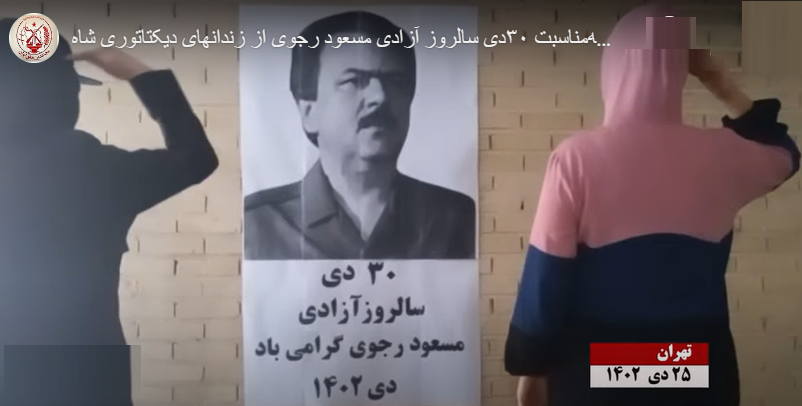

Among the 126 freed individuals were Massoud Rajavi and other prominent members of the People’s Mojahedin of Iran (PMOI/MEK). This day not only symbolizes a pivotal moment in Iran’s past but also serves as a beacon of hope and resistance against oppression.
The event was a turning point in Iran’s tumultuous history. The release of these prisoners played a crucial role in the subsequent developments, as the PMOI/MEK and other freedom-seeking groups actively participated in the protests that catalyzed the 1979 revolution. This uprising ultimately led to the fall of the monarchy in Iran, less than a month after the prisoners’ liberation.
January 20 has since evolved into a day of great importance for PMOI supporters and the broader Iranian Resistance. Every year, members of the Resistance Units, a network of PMOI activists within Iran, commemorate this day nationwide. These activities are not just a remembrance but a bold statement of ongoing defiance and commitment to the cause of freedom and democracy.
In Tehran, the Resistance Units installed posters of Massoud Rajavi across the city, underscoring his leadership with slogans like, “The world should know that Massoud Rajavi is our leader.” Similarly, in Shiraz, activists celebrated the release of the political prisoners, echoing the words of the late Ayatollah Mahmoud Taleghani, who had expressed fear among torturers and interrogators at the mention of Rajavi’s name.
From Hamedan to Karaj and Khorram Abad, the Resistance Units displayed posters and placards, reiterating their unwavering commitment to the struggle for freedom and resistance against religious fascism. These posters often carried powerful messages, such as “Rebels never surrender” and “Massoud is the flag-bearer of maximum resistance.”
In Amol, posters quoted Rajavi’s first speech post-release: “You can’t keep a nation in captivity forever,” a poignant reminder of the enduring spirit of resistance. In cities like Kermanshah and Rasht, the youth defied the regime’s efforts to prevent their involvement in the PMOI, with placards declaring, “The world should know that Massoud is our leader.”
Moreover, the Resistance Units marked the anniversary by projecting images of Massoud Rajavi onto public walls across various cities, accompanied by messages of defiance. These activities occurred in Tehran, Shiraz, Karaj, Rasht, Isfahan, Arak, Mashhad, Kermanshah, and more, demonstrating the widespread support for the resistance.
Despite the regime’s continued attempts to suppress support for the PMOI and the National Council of Resistance of Iran (NCRI), including a court case against over 100 members of these groups, the resistance movement remains undeterred. The regime’s propaganda and intimidation tactics have not dampened the spirit of Iran’s youth, who are increasingly drawn to the PMOI’s cause, seeking an end to the religious fascism that has gripped their nation.

MEK Iran (follow us on Twitter and Facebook), Maryam Rajavi’s on her site, Twitter & Facebook, NCRI (Twitter & Facebook), and People’s Mojahedin Organization of Iran – MEK IRAN – YouTu







